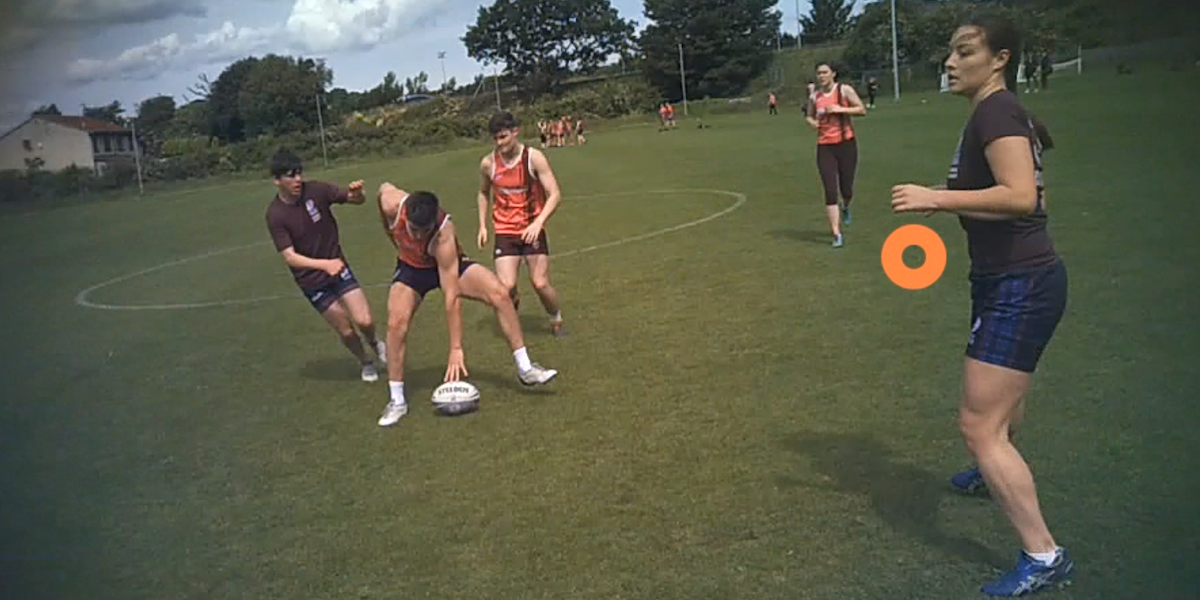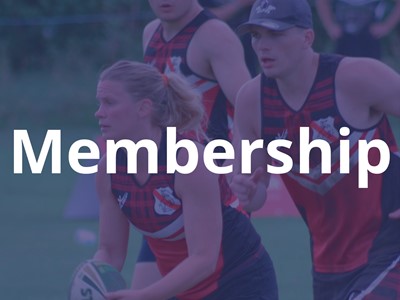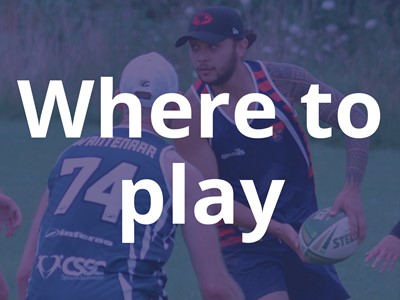Sign-up to receive all the latest news from England Touch
Touch Referees play key role in cutting-edge research

The unique demands made on Touch referees have been put at the heart of significant cutting-edge research undertaken at Edinburgh Napier University.
Led by Dr Duncan Mascarenhas, Associate Professor of Sport Psychology and Coaching, the research team sought to investigate how sports officials integrate perception and cognition to manage in-game decisions.
Dr Mascarenhas, who is both a qualified referee and has represented England at multiple international tournaments, used his knowledge of Touch to put the sport at the heart of the first known study of this kind, which used eye-tracking glasses and an applied cognitive task analysis (ACTA) simulation interview to collect, collate, analyse and synthesise the data.
As is recognised best practice with ACTA methodology, a small number of referees were used, but the participants were certainly of the highest quality, all holding the Level 5 (ie the highest level) Federation of International Touch qualification. Furthermore, they all have between 9 and 18 years’ refereeing experience, have officiated in between 53 and 80 international matches, and who have been recognised for their dedication, guidance, contribution and leadership to Touch refereeing across Europe.
The task required them to wear the eye-tracking glasses while officiating regularly scheduled regional Touch matches, officiating the matches and making decisions as they would normally. The technology collects point-of-view audio-visual recordings, together with fixation data, and gave the research team unrivalled and unique opportunities to both see the referees’ perspectives as well as assess their communication skills to the players around them on the field.
Touch is a sport which makes significant aerobic demands on its referees, and matches are officiated by a team of three, who all rotate between being the control referee as the primary on-field referee with spells as sideline referees, where they assist the official. As such each game was segmented into passages where the participant was undertaking each of these roles, and transitioning between the control and sideline positions, which can often happen while play is in motion.
Within 72 hours of the match day each participant took part in an ACTA interview, where they were presented with a number of clips and asked about how they approached the situation presented within the selected clip.
Areas for discussion included:
- Events: what is taking place here
- Actions: what are you doing and what are the players doing?
- Situation assessment: what is your understanding of the situation presented?
- Critical cues: which cues are you attending to and which are relevant to the decision-making process? Which are disrupting the decision-making process?
- Scanning patterns: how long are cues being attended to and in what order are you addressing them?
- Errors: what common errors might a novice official make in this situation?
The results of the study have excited the team of researchers, according to Dr Mascarenhas.
“Having played Touch at a high level for a number of years I am well aware of the unique aspects of the sport, especially as far as referees are concerned,” he says. “There are very few sports where all three match officials will spend time on the sidelines and in the middle during play, especially where there is often the need for officials to transition between being sideline and primary roles at high speed.
“Despite the physical demands, the referees who kindly gave up their time to be a part of this unique study nevertheless demonstrated not just their understanding of the rules, but also how to manage the game in an empathetic and responsive manner to try and keep the action flowing as much as possible.
“They all showed a clear appreciation of the critical cues that inform their decisions and actions. This included looking at both attacking and defending team’s positioning, as well as the individual player body language, and communicating clearly and concisely.
“While this has been an academic study, I am hopeful that it can also be used to help train less experienced referees and give them not just insight from the best in the sport, but also their personal visual perspectives, too.
“The study also shows that exciting research can be done away from the so-called ‘major’ sports such as football, cricket and other codes of rugby, and I’m very proud of what has been achieved.”
To find out more about the study, contact Dr Duncan Mascarenhas via d.mascarenhas@napier.ac.uk







